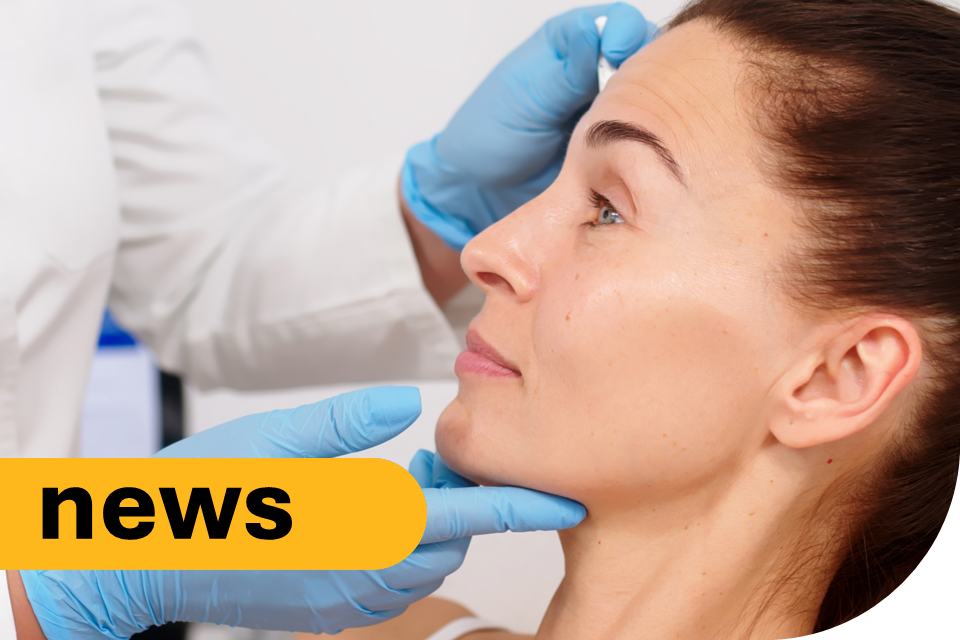UK Health Security Agency Issues Warning as Botulism Cases Rise Following Cosmetic Procedures
On a sweltering July afternoon, Margaret, a 34-year-old marketing consultant from Norwich, was enjoying a day out when she felt a sudden tightening in her throat. At first, she dismissed it as a minor discomfort, but within hours, she found herself struggling to swallow and speak. Her experience, once thought to be a fleeting complication of a commonly sought-after beauty treatment, spiraled into a harrowing race against time that led her to the hospital. Margaret had become one of 38 reported cases of iatrogenic botulism linked to recent cosmetic procedures in the East of England.
Startling Number of Cases Detected
The UK Health Security Agency (UKHSA) announced this alarming trend, which has captured the attention of health officials and the public alike. Between June 4 and July 14, 2025, a surge in botulism cases was observed, with patients presenting to NHS healthcare settings after undergoing aesthetic treatments involving botulinum toxin. While botulinum toxin, commonly known by the brand name Botox, is widely used in cosmetic procedures, the recent spike points to the use of unlicensed variants that put individuals’ health at serious risk.
Dr. Gauri Godbole, a Consultant Medical Microbiologist at UKHSA, emphasized the unusual nature of these cases, noting, “Botulism related to aesthetic procedures is rare, but it can be serious. We are working closely with our partners to mitigate the public health risk.” Current investigations indicate that these incidents may not be directly connected to earlier cases detected in the North East, but further analysis is ongoing.
Symptoms and Severity
The symptoms of botulism can manifest slowly, and patients often do not connect their adverse reactions to the procedure they underwent. Symptoms can take up to four weeks to surface, and may include:
- Difficulty swallowing
- Slurred speech
- Breathing difficulties requiring respiratory support
As health professionals scramble to deliver timely treatment, the possibility of a future epidemic looms large. “We must act quickly,” said Dr. Alison Cave, Chief Safety Officer at the MHRA (Medicines and Healthcare products Regulatory Agency). “Public safety is a top priority, and the misuse of botulinum toxin can lead to irreversible health consequences.”
The Importance of Licensed Products
The botulism outbreaks raise critical questions about the sourcing and regulation of cosmetic injectables. Consumers often realize too late that safety nets surrounding these treatments are fragile at best. Dr. enthusiastically advocates for public awareness, stating, “If you are considering injectable treatments, ensure that the product is licensed and administered by a registered healthcare professional.”
The recent surge has brought to light the broader implications of cosmetic procedures in the UK. A study commissioned by the UKHSA in early 2024 found that approximately 11% of individuals seeking aesthetic treatments were unaware of the risks associated with unlicensed products. This knowledge gap underscores an urgent need for consumer education.
Regulatory Challenges and Industry Considerations
The MHRA enforces stringent regulations surrounding botulinum toxin, which is classified as a prescription-only medicine. Nonetheless, the rise in incidents points to a troubling trend where individuals procure these substances outside legal channels. Dr. Cave explained, “Buying botulinum toxin in any other circumstances significantly increases the risk of getting a product that is either falsified or not licensed for use in the UK.”
In response to this crisis, NHS England emphasizes the need for professional guidance when considering such procedures. Professor Meghana Pandit, Co-National Medical Director for secondary care, echoed similar sentiments, saying, “When these procedures go wrong, there is a risk of serious infections and permanent scarring. That’s why only registered professionals should be administering these treatments.”
Consumer Safeguards and Best Practices
Safety will increasingly hinge on informed consumer choices and stringent practitioner guidelines. The UKHSA has advised individuals seeking aesthetic treatments to take the following precautions:
- Always verify that the product used is licensed and approved.
- Ensure that the practitioner administering the procedure is qualified and registered.
- Consult the NHS website for comprehensive advice on choosing a reliable practitioner.
It is essential that patients educate themselves regarding the qualifications of their chosen healthcare provider. Health experts recommend asking questions about the procedures, potential risks, and products being used to ensure optimal safety.
A Growing Public Health Concern
The increasing prevalence of botulism cases tied to cosmetic procedures indicates a troubling intersection of public health, consumer safety, and regulatory failure. As NHS and UKHSA officials step up efforts to investigate and address these adverse reactions, Margaret’s story serves as a cautionary tale for many, highlighting the potential hazards lurking beneath the quest for beauty. As she continues her recovery, she hopes to raise awareness about these risks, urging others to think critically before undergoing cosmetic procedures that promise to enhance their appearance.
In the fast-paced world of aesthetic enhancements, the stakes are higher than ever. With education, vigilance, and strict adherence to safety protocols, the goal remains clear: to prevent further tragedies and ensure that beauty does not come at such a hefty price.
Source: www.gov.uk


